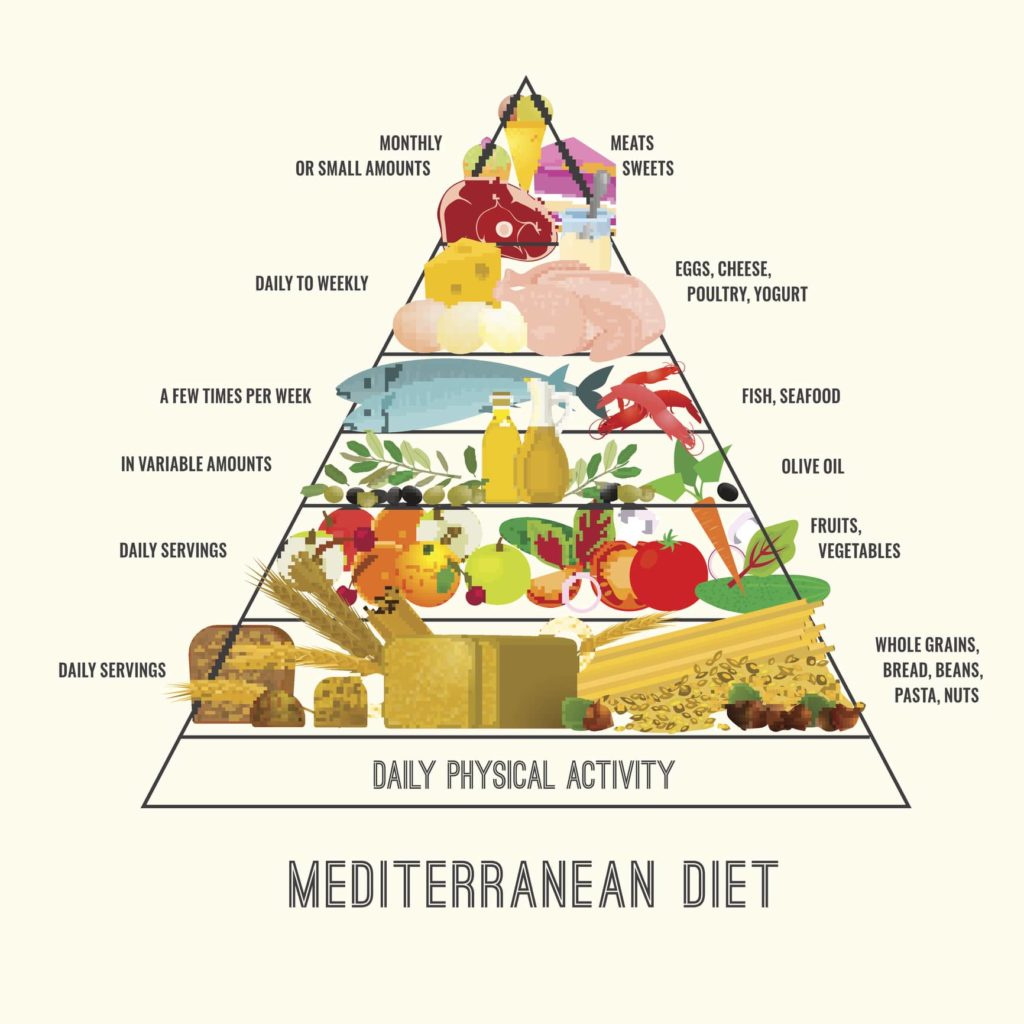The Mediterranean diet was declared Intangible Cultural Heritage in 2010 by the United Nations Educational, Scientific, and Cultural Organization (UNESCO). It has been awarded such recognition because it involves “a set of skills, knowledge, rituals, symbols and traditions concerning crops, harvesting, fishing, animal husbandry, conservation, processing, cooking, and particularly the sharing and consumption of food”.
The Mediterranean diet includes the cuisine and culture of Cyprus, Croatia, Spain, Greece, Italy, Morocco, and Portugal. It has a great emphasis on food as celebration as it plays a huge role in social gatherings; strengthening communities and the collective identity. Women are in charge of passing down the traditions, from ancient recipes for baking bread to the craftsmanship of ceramic plates and other food receptacles. The elderly are highly respected. And farmers and other local producers are distinguished at the lively markets, where their knowledge is also transmitted to the general public.
Key Mediterranean lifestyle factors are relationships, pleasure and leisure, which help to reduce stress and contribute to mental well-being. Moderate-intensity activity is part of the everyday life. Think of long walks or even a couple of hours of gardening. At least two and a half hours of moderate exercise a week with a couple of muscle-strengthening activities is strongly recommended.
The relaxed attitude of coastal living is reflected in simple, nourishing, and colorful dishes. The Mediterranean diet is rich in omega-3 fatty acids and low in red meat, sugar, and saturated fats. It includes foods from all groups and mainly focuses on:
- Lots of extra virgin olive oil
- Whole grains in abundance
- Seasonal fruits and vegetables
- Legumes
- Wild fish and local seafood (twice a week)
- Poultry and eggs (three times a week)
- Quality dairy products (in moderation, mainly from goats
- Lean meats and sweets (for special occasions)
- Healthy snacks such as nuts and seeds
- Herbs and spices for seasoning
- Wine (1-2 glasses per day)
- Water
The Harvard School of Public Health, the non-profit Oldways, and the World Health Organization (WHO) introduced the classic Mediterranean Diet along with the Mediterranean Diet Pyramid in 1993[1]. Since then, the culinary guide and ancient wisdom of this region have been regarded as one of the healthiest nutrition patterns in the world. It is balanced and therefore safe to follow for people of all ages. Even vegetarians and gluten intolerant patients can stick to the diet with a few substitutions.
The Mediterranean diet has shown positive results for anti-aging, weight loss, weight control overall healthy eating, and the prevention of many chronic diseases. There is scientific evidence to prove that it promotes heart health, bone strength, and brain fitness, as well as helping to fight certain cancers, and controlling diabetes. Choose the Mediterranean diet to:
- Lower the risk of heart disease
- Reduce high blood pressure and high cholesterol
- Decrease asthma
- Fight Parkinson´s and Alzheimer disease
- Avoid insulin resistance
- Control diabetes
- Resist depression
- Keep bone mass in adulthood
- Enhance dental health
- Shed fat around the waist
- Improve rheumatoid arthritis
- Lengthen your life
- Increase fertility
Keen to try out the Mediterranean diet? Follow these eight simple steps:
- Consume plenty of seasonal vegetables.
- Reduce your overall intake of red meat.
- Enjoy seafood twice a week.
- Eat like a vegetarian one day of the week.
- Use extra virgin olive oil in daily meals.
- Switch to whole grains and whole grain bread and pasta.
- Eat fresh fruit for dessert.
- Choose quality organic or artisan dairy products.
References:
http://www.unesco.org/culture/ich/en/RL/00884
http://oldwayspt.org/resources/heritage-pyramids/mediterranean-pyramid/overview http://health.usnews.com/best-diet/mediterranean-diet
http://oldwayspt.org/resources/heritage-pyramids/mediterranean-diet-pyramid/med-diet-health

